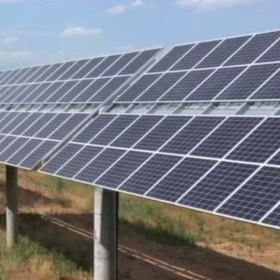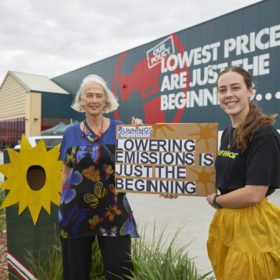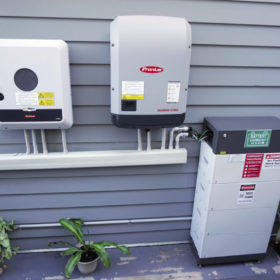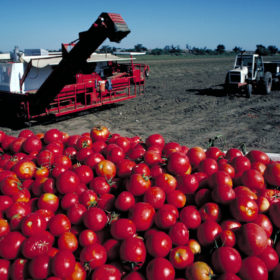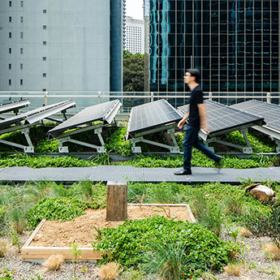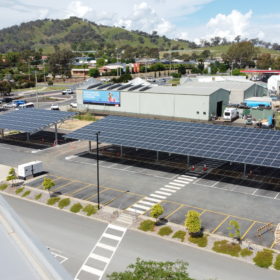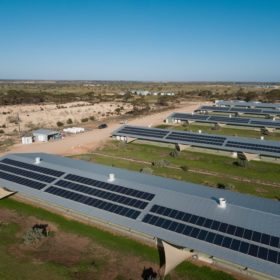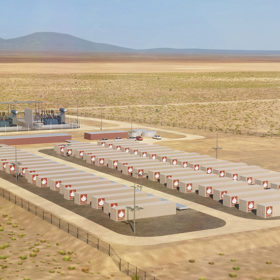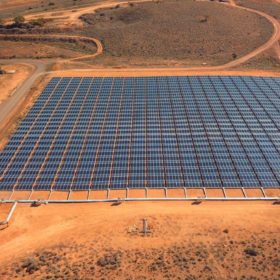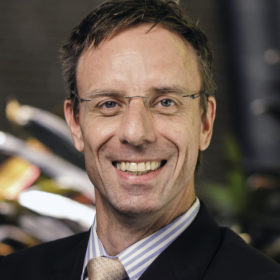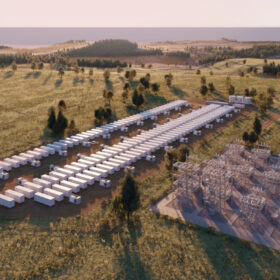Utility scale agrivoltaic proposal for NSW opens for public exhibition
A utility-scale “integrated agri-solar” farm proposed in southern New South Wales has begun its public exhibition period.
No longer stationery: Officeworks joins slew of businesses committing to 100% renewables
Officeworks jumped on the bandwagon of businesses in Australia committing to 100% renewable electricity in the next five years. Both Bunnings and Officeworks announced their plans in the last week, sparking calls for Target and Kmart, which are also in the Wesfarmers portfolio, to follow suit.
NT’s Home and Business Battery Scheme charging ahead
230 Northern Territory businesses have already received their vouchers for Australia’s most generous energy storage subsidity, the NT’s Home and Business Battery Scheme. The scheme, which is still open for applications until November 30, offers grants of $6,00 to homeowners and business owners to install solar and battery storage, or complement an existing solar system with a battery.
Solar-powered cooling system for crop storage
South African scientists have used a PV system to keep tomatoes in cold storage. They linked an air-cooling system and evaporative cooling tech to a 3.5 kW array and 12 batteries and tested it for 28 days in September.
‘Limitless possibilities’ of C&I solar on display at CEC awards
The winners of the Clean Energy Council’s 2020 solar design and installation awards announced today have been applauded as stunning examples of the innovative solutions being deployed in the commercial rooftop solar sector (C&I) as more businesses look to reap the benefits of solar.
Victorian utility installs carpark system at Wodonga headquarters
Victorian utility North East Water have constructed a mini-solar farm over the carpark of their Wodonga headquarters. The 132 kW system is expected to provide half of the building’s energy use, with 330 modules generating 500kW per day in addition to the headquarter’s existing rooftop PV array.
Winner, winner, chicken dinner! Australia’s largest poultry farm switches on solar plus energy storage system
Australia’s largest free-range chicken farm switched on one of the biggest solar plus energy storage system’s of any commercial farm in the country this week. With 1.4 MW of rooftop solar combining with 2.28 MWh of energy storage via 5 Tesla lithium-ion batteries, the farm is excited to save enormous amounts on its energy bill and its emissions. Winner, winner!
SA Government contracts for energy to advance Cultana Solar Farm and Playford Utility Battery
Construction of South Australia’s biggest solar farm, and the state’s fifth “big” battery will provide 810 jobs and a $41 million boost to the economy around Whyalla. The Marshall Government buys in and forecasts a $12.8 million saving on its energy expenditure over the term of its 10-year energy contract.
Solar future twice as bright in SA as the state bids to become an H2 export hub
South Australia has done some hard yards in pursuing the transition to green energy, integrating 50% renewable generation into its grid, and advancing the management of a vast fleet of distributed rooftop energy resources. Now it’s seeking investors to continue the renewable buildout beyond its own requirements and potentially fuel the world with green hydrogen.
Weekend read: Singapore solar walks the talk
Earlier this year, Singapore surpassed its 2020 target for 350 MW of installed PV, and has set itself a more ambitious goal of 2 GW for the coming decade. pv magazine recently spoke with Thomas Reindl, deputy CEO of the Solar Energy Research Institute of Singapore (SERIS) – and also the lead author of a 2020 update to the institute’s PV Roadmap for Singapore report – to catch up on the latest developments in the city-state’s PV market.
